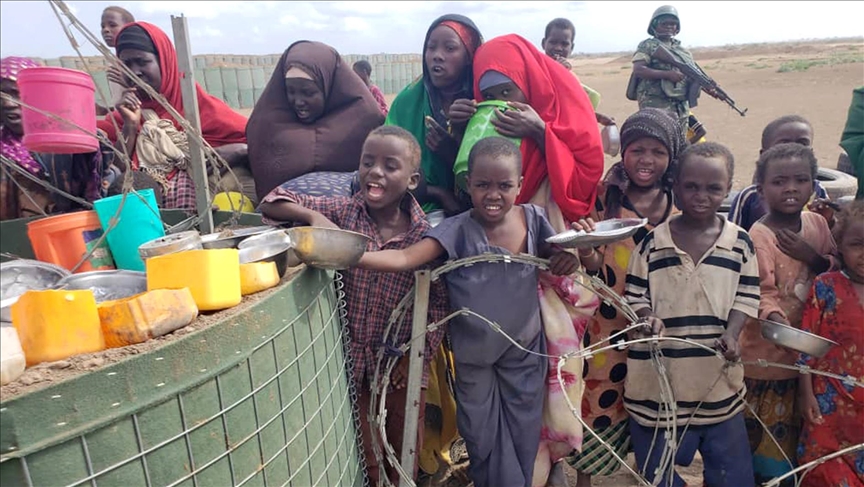Mass movements of people overwhelm water, sanitation systems, resulting in outbreaks of of cholera, measles, meningitis, mpox and plague, says senior emergency officer
Beyza Binnur Donmez |12.07.2024 -

GENEVA
The World Health Organization (WHO) on Friday warned that without immediate action, over 1 million children will suffer acute malnutrition in the Democratic Republic of the Congo.
Describing the current situation in DRC as "catastrophic," WHO's senior emergency officer Adelheid Marschang told a UN briefing in Geneva: "In the past months, DRC has faced escalating conflict and violence, leading to mass displacement, widespread disease, gender-based violence, and severe mental trauma, particularly in the eastern part of the country."
Marschang noted that the country has "the highest number of people in need of humanitarian aid" in the entire world, with 25.4 million people affected.
"Despite this, it remains one of the most underfunded crises," she lamented.
She drew attention to the number of total displaced people -- around 7.4 million -- and said these mass movements of people not only overwhelm water and sanitation systems but also resulting in outbreaks of cholera, measles, meningitis, mpox and plague, "all exacerbated by severe flooding and landslides affecting some parts of the country."
In 2024, over 20,000 cases of cholera and close to 60,000 cases of measles have been reported, according to the officer, who warned that actual numbers likely to be higher due to limited disease surveillance and data reporting.
Pointing armed conflict and displacement as "the main drivers" of food insecurity, she cited the latest food insecurity report, which found 40.8 million people face serious food shortages, with 15.7 million facing severe food insecurity and a higher risk of malnutrition and infectious diseases.
"If immediate action is not taken to address basic needs in DRC, over one million children will suffer from acute malnutrition," she warned.
She also noted that so far this year, WHO has reached 460,000 people with emergency health services in conflict-affected areas.
Humanitarian access remains "severely constrained" by military presence, she said and called for "sustained and unimpeded" access, urging the parties to work together to restore peace.
No comments:
Post a Comment